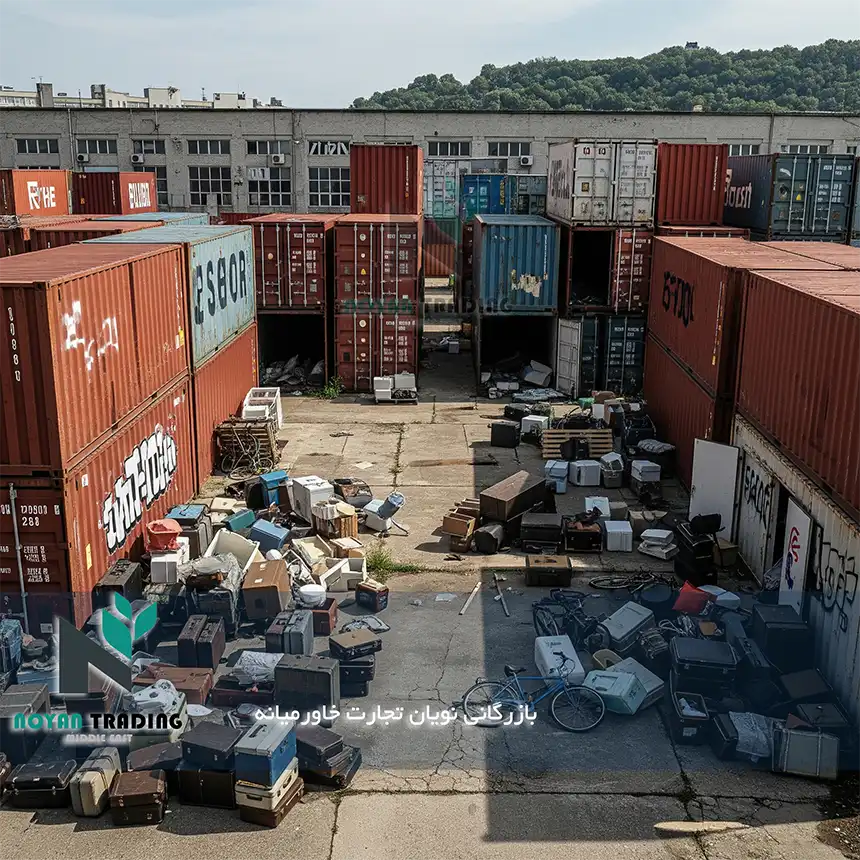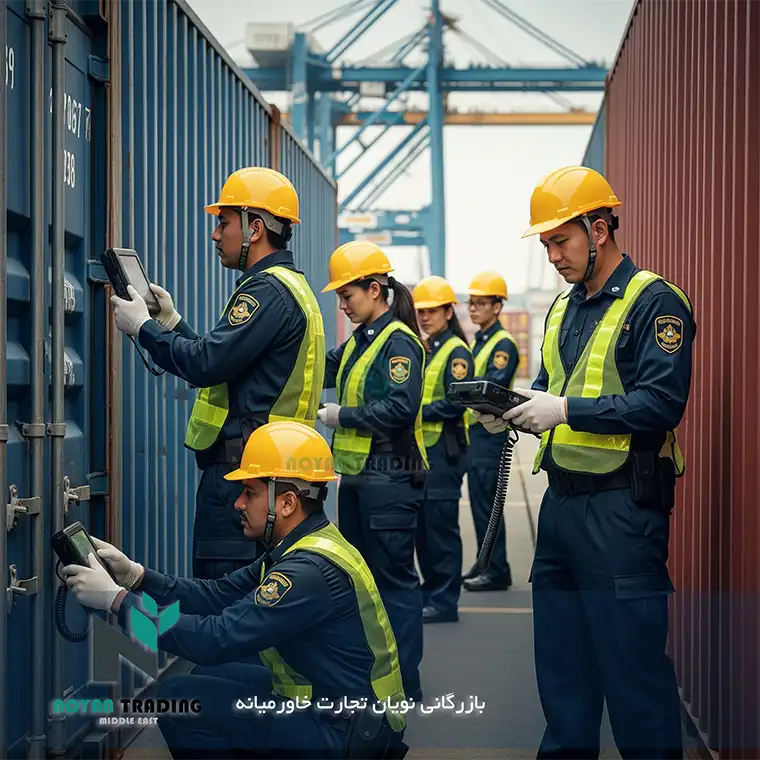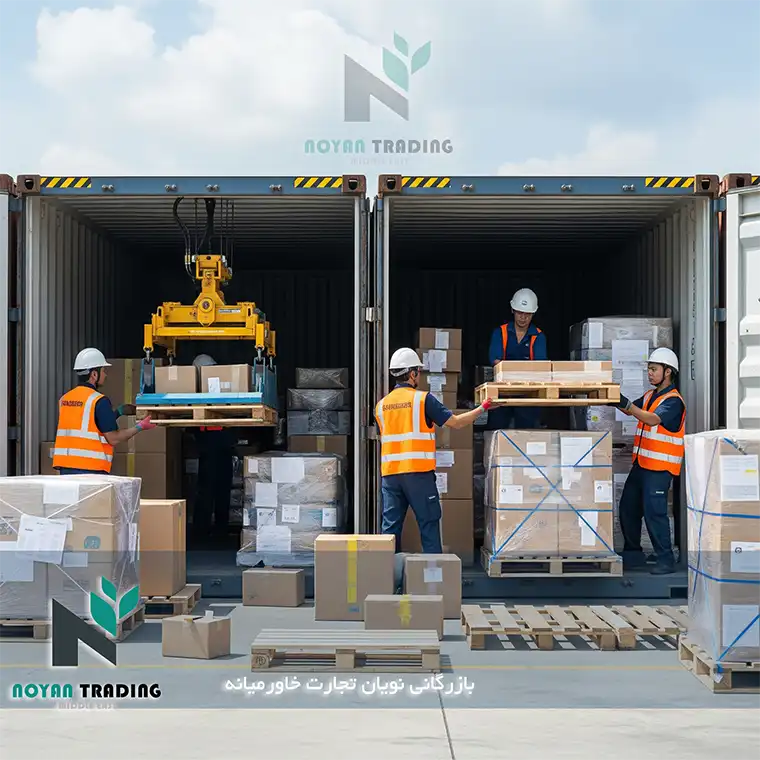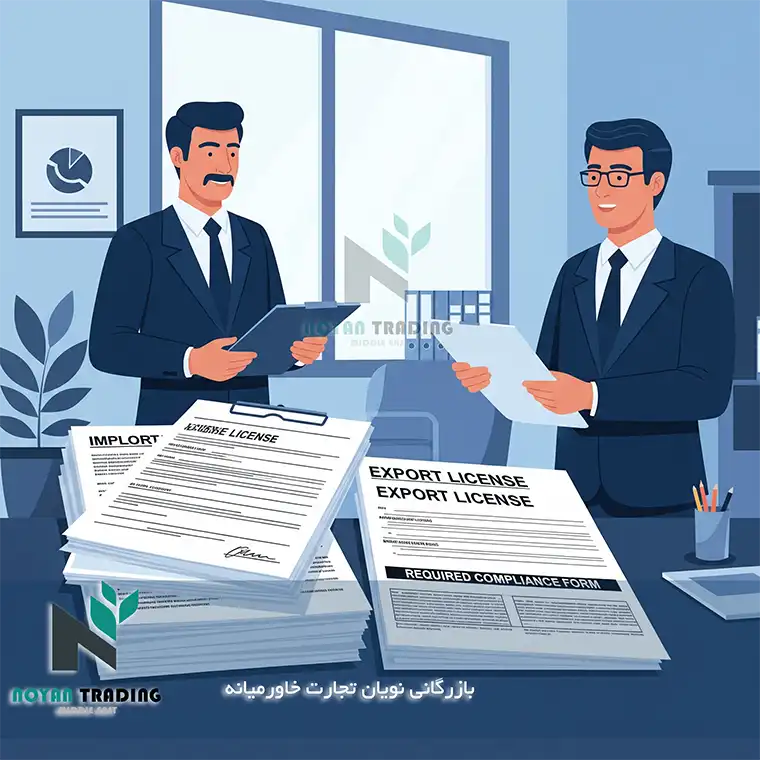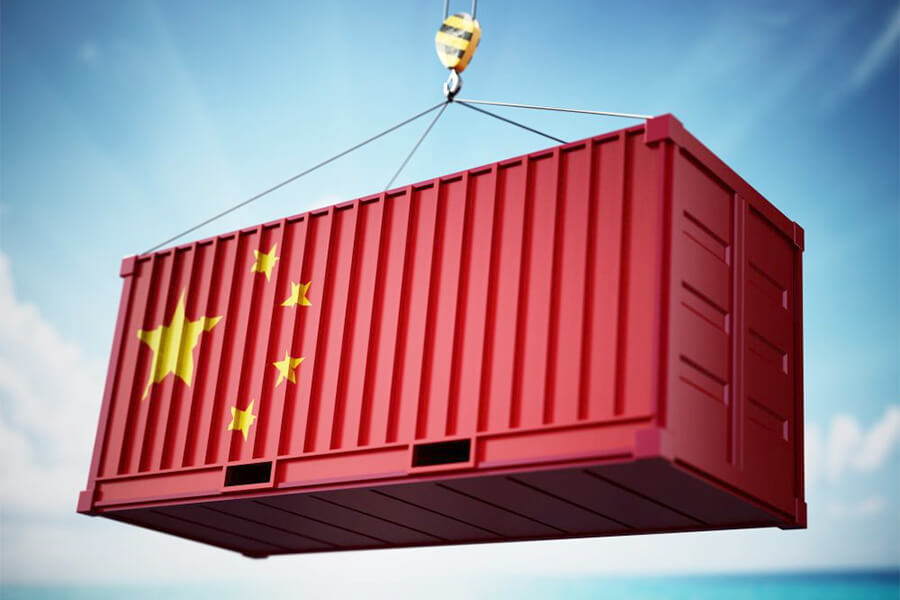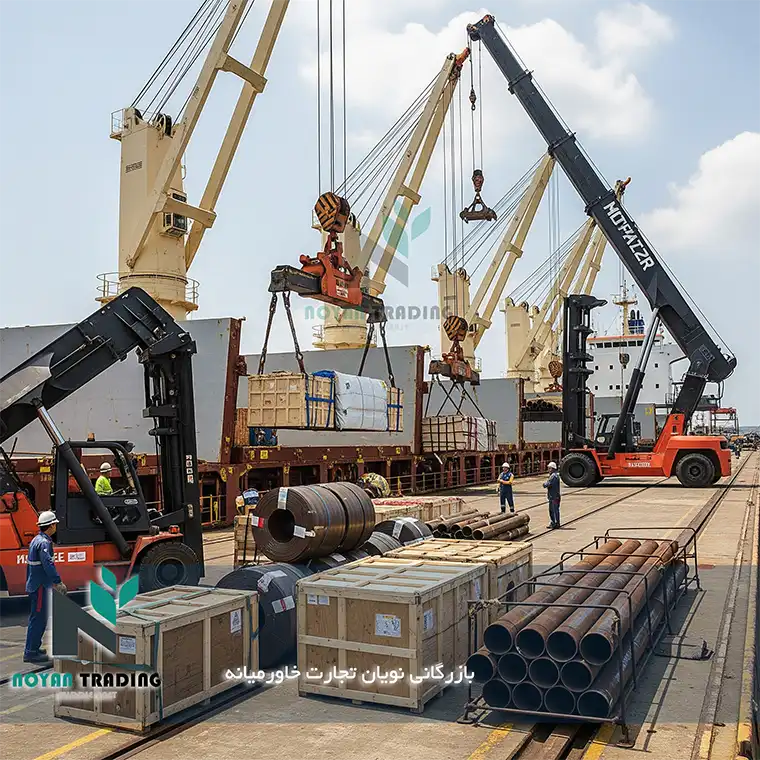In the Iranian customs system, abandoned goods refer to goods that have not been cleared by the owner of the goods within the legally prescribed deadline after entering customs facilities (such as warehouses, ports, airports) and have been left to their own devices. In other words, the owner of the goods has not taken the necessary steps to declare, pay import duties and taxes, and export the goods within the specified time.

Duration of goods being abandoned at Iranian customs
- Goods imported through Air: If the owner of the goods does not take action to clear the goods after 2 months from the date of the first warehouse receipt, the goods are considered abandoned. (Some sources refer to 70 days, but 2 months is more common.)
- Goods imported by land and sea: If the owner of the goods does not take action to clear the goods after 4 months from the date of the first warehouse receipt, the goods are considered abandoned.
- Extension of the deadline: Upon written request by the owner of the goods and with justified reasons, this deadline can be extended for another 2 months (for air goods) and another 4 months (for land and sea goods). Of course, this extension is subject to the customs’ discretion.
- Manufacturing establishments: For manufacturing establishments, this time period may vary and may not include the above time limits.
Main reasons for goods being abandoned
- Non-presentation or incomplete documentation: Failure to provide complete and correct documentation required for goods clearance (such as invoice, bill of lading, certificate of origin, health permits or standards).
- Failure to obtain necessary permits: Failure to obtain legal permits for the import of goods from relevant organizations on time (for example, a permit from the Ministry of Health for food).
- Financial problems: Inability of the owner of the goods to pay clearance costs, including import duties, customs duties, taxes, and warehousing costs.
- Transportation problems and transportation: Disruptions such as delays, vehicle breakdowns, or goods arriving at the wrong destination.
- Goods not matching the order: The goods may not match the original order and the owner of the goods may refuse to clear them.
- Market changes: Sudden changes in exchange rates, tariffs, or market demand that make clearing the goods economically uneconomic for the owner of the goods.
- Insufficient notification: In some cases, the owner of the goods is not informed of the arrival of his shipment at customs or the need for timely clearance.
Current Iranian Customs Laws on Abandoned Goods
The laws on abandoned goods are mainly specified in the Customs Affairs Law of the Islamic Republic of Iran and its executive regulations, as well as the Law on the Collection and Sale of Abandoned, Smuggling, and Confiscated Goods, Unused Smuggling Goods, and Fugitive Owners.
The most important points and steps in dealing with abandoned goods are:
- Declaration of Abandonment: After the expiration of the legal deadlines (and the deadline for extension upon request), Customs officially declares the goods “abandoned”. This announcement is communicated to the owner of the goods or the carrier, and if the owner of the goods is unknown, it is announced through widely circulated newspapers.
- Transfer to the Organization for the Collection and Sale of Possessed Goods: According to Article 33 of the Customs Law, the Organization for the Collection and Sale of Possessed Goods is responsible for the storage, management and sale of abandoned, confiscated (seized) and transferred goods to the customs. After the announcement of abandonment, the goods are transferred from the customs warehouses to the warehouses of this organization.
- Right to clearance of goods until the time of sale: As long as the goods have not been sold by the Organization for the Possessed Goods, the owner of the goods has the right to take action to carry out definitive customs formalities and clear his goods after the customs have notified the said organization. This requires submitting a declaration or changing the declaration title, complying with all relevant regulations, and paying all applicable fees (including import duties, duties, taxes, warehousing costs, and late fees).
- How to sell abandoned goods:
- Public auction: Abandoned goods that can be sold are mainly sold through public auction by the Organization for the Collection and Sale of Owned Property. These auctions are publicly announced (through the website of the Organization for the Collection and Sale of Owned Property and other media).
- Expertise and pricing: Before the auction, the goods are evaluated and valued by relevant experts to determine the base price of the auction.
- Prioritization: In abandoned goods auctions, the owner of the goods (the original owner) can also participatebut has no priority over other participants.
- Deduction of costs and refund of the remaining amount: After the sale of the goods at the auction, the Property Owners Organization first deducts all customs costs (entry duties, duties, storage costs and fines) as well as the costs related to the sale (auction) from the sale proceeds. The remaining amount (if any) is deposited into the escrow account of the owner of the goods.
- Deadline for claiming the sale proceeds: The owner of the goods has two years to claim and receive the remaining amount from the sale of his abandoned goods from the customs or the Property Owners Organization by providing the necessary documents and evidence to prove ownership. After this period, if the amount is not claimed, it will be deposited into government revenue.
- Destruction of goods (in special cases): Goods that are perishable, dangerous, inedible, have no commercial value, or violate safety and health standards (such as expired food or smuggled goods that have a court order to destroy them) will be destroyed (destroyed) instead of being sold.
- Objection of the owner of the goods: In the event that the goods are seized by customs due to customs violations or abandonment, the owner of the goods can object to the judicial authorities within the legal deadlines (usually 15 days to object to the seizure and 2 months to refer to the judicial authorities after the minutes of the seizure are notified).
Abandoned Goods (Supplementary Explanation)
“Abandoned goods” in Iranian customs terminology refers to goods that, after legally entering the premises Customs (such as warehouses, ports, airports, public warehouses under customs supervision), have not been cleared by the owner or its legal representative within the legal deadlines and have been placed in a state of uncertainty due to lack of follow-up. These goods are considered to be “abandoned” by their owners, as the declaration, payment of customs duties and taxes, and their final exit from customs have not been completed.
Importance of legal deadlines in abandonment:
The legal deadlines for the clearance of goods, which are calculated from the date of issuance of the first warehouse receipt, are very crucial. Failure to comply with these deadlines, even for one day, can result in the goods being abandoned:
- Goods imported by air: Two months (60 days) from the date of issuance of the first warehouse receipt.
- Goods imported by land and sea: Four months (120 days) from the date of issuance of the first warehouse receipt.
Important note: These deadlines are extendable. The owner of the goods may request an extension of the deadline from Customs by submitting a written request and valid reasons. This extension is possible for another two months for air goods and for another four months for land/sea goods. Of course, the final decision on the extension rests with the customs, and if accepted, the owner of the goods must also bear the storage costs for the extension period.
Main and root causes of abandoned goods:
Abandoned goods are usually caused by one or a combination of the following problems:
- Documentation and permit problems:
- Incomplete or incomplete documentation: Lack of or incomplete documentation such as a commercial invoice, packing list, bill of lading, certificate of origin, health certificate, standard certificate, or other necessary permits from relevant organizations.
- Failure to obtain necessary permits: Many goods require specific import permits from relevant ministries or organizations (such as the Ministry of Health, the National Standards Organization, the Ministry of Agricultural Jihad, the Food and Drug Administration). Delays or failure to obtain these permits will stop clearance.
- Document mismatch: A discrepancy between the information contained in the documents and the actual contents of the goods, which leads to customs complications.
- Financial and economic problems:
- Inability to pay customs duties and taxes: Customs fees (including import duties, taxes, VAT and other taxes), along with storage costs and possible fines, may be burdensome for the owner of the goods.
- Exchange rate fluctuations: Sudden and severe changes in the exchange rate can disrupt the importer’s economic calculations and make clearance of goods financially uneconomical.
- Market recession or change in demand: After ordering goods, the domestic market may experience a recession or demand for that product may decrease, So that the importer refuses to clear it.
- Bankruptcy or financial problems of the importer: In cases where the importer faces a financial crisis or bankruptcy.
- Technical and logistical problems:
- Damage to goods in transit: Damage or spoilage of goods during transportation.
- Loading/unloading error: Sending goods to the wrong destination or problems in loading and unloading operations.
- Complexities of the clearance process: The owner of the goods is unfamiliar with customs procedures and regulations.
- Legal or judicial problems:
- Disputes between partnersOr beneficiaries: In cases where several people share ownership of the goods and a dispute arises between them.
- Detention of goods by order of judicial authorities: Goods may be seized by order of judicial authorities for various reasons (such as legal claims or ownership issues).
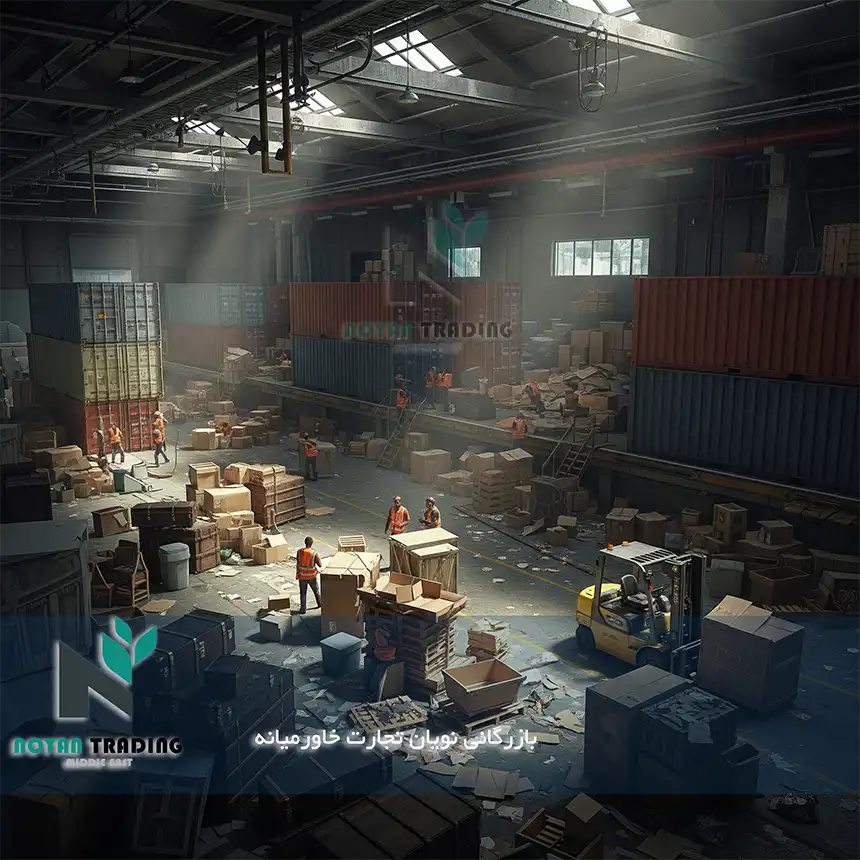
Laws and process for dealing with abandoned goods at Iranian customs
Laws related to abandoned goods are mainly contained in the Customs Affairs Law approved1390 and its Executive Regulations, as well as The Law on the Collection and Sale of Abandoned, Smuggled, and Confiscated Goods, approved in 1933, has been explained.
Steps and Measures of Customs and the Property Organization:
- Notification of Abandonment:
- After the legal deadlines (and extension deadlines) expire, the relevant customs office officially declares the goods “abandoned.”
- This notification is notified to the owner of the goods or his legal representative (and if the owner of the goods is not known, to the carrier).
- If the owner of the goods is not known, the notification is published in widely circulated newspapers to inform the public.
- Transfer to the Organization Collection and sale of confiscated goods:
- Article 33of the Customs Affairs Law stipulates that the responsibility for maintaining and managing abandoned, confiscated, and smuggled goods lies with the Organization for Collection and Sale of Confiscated Goods.
- After being declared abandoned, the goods are transferred from the customs warehouse to the specialized warehouses of this organization. This transfer is carried out by preparing minutes and observing legal formalities.
- Right to clearance of goods by the owner of the goods (until the time of sale):
- This is a key point: Even after the goods are declared abandoned and transferred to the Property Management Organization, the owner of the goods has the right to clear it until the time of the auction and final sale of the goods.
- To do this, the owner of the goods must refer to the Property Management Organization and then to the relevant customs office.
- The clearance conditions at this stage include definitive declaration of the goods, compliance with all current import and export regulations, and payment of all applicable fees. These fees include import duties, customs duties, taxes, warehousing costs (from the time the goods enter customs until clearance), and late fees related to abandonment. These fines may also include the costs of transporting the goods to the appropriate warehouse and storing them there.
- Sale of abandoned goods by the appropriate property organization:
- The main method of sale is public auction: Abandoned goods that are salable are sold by the appropriate property organization through public auction. These auctions are widely advertised through the website of the Property Organization and other media.
- Expertise and Pricing: Before the auction, the goods are evaluated and priced by the organization’s experts to determine a base price for the auction.
- Prioritization: The owner of the goods (the original owner) can also participate in the auction, but he has no priority over other participants and must win the auction with the highest bid.
- Distribution of sales proceeds:
- After the goods are sold at auction, the Property Organization first pays all government costs (entry fees, duties, taxes, fines) and costs related to the storage and sale of the goods (storage costs, auction costs, expertise, etc.) Deducts from the sale proceeds.
- The remaining amount (if any) is deposited into the escrow account of the owner of the goods as “proceeds from the sale of abandoned goods.”
- Deadline for claiming the remaining amount:
- The owner of the goods has two years from the date of the sale of the goods at auction to claim and receive the remaining amount from the sale from the customs or the property organization by providing proof of ownership and identity.
- After the expiration of this two-year period, if the amount is not claimed, it will be deposited into the government’s final revenue and the owner of the goods will no longer have any rights to it.
- Destruction of goods (in special cases):
- Not all abandoned goods can be sold. Goods that are perishable, dangerous, unfit for human or animal consumption, lacking commercial value, or contrary to Sharia and health/safety standards are destroyed instead of being sold. This process is carried out under supervision and in compliance with health and environmental protocols.
- Legal and Legal Responsibilities:
- The owner of the goods is responsible for storage costs and penalties related to the abandonment of the goods, even if the goods are ultimately destroyed.
- The customs legal team or the property management organization may interact with the owner of the goods if specific problems arise.
Knowing these detailsIt is very crucial for any importer or even exporter whose goods are returned for some reason and are placed in Iranian customs premises. Failure to pay attention to deadlines and regulations can lead to the complete loss of goods and incur heavy financial losses. Therefore, cooperating with experienced customs clearance agents and legal advisors specializing in customs matters is a rational solution to prevent such problems.

